Throughout my life, I was never one to think twice about eating meat. Coming from a family that ate meat all the time meant there was no real reason to second-guess it. Every barbecue, special holiday or meal I can remember brought along heaping servings of grilled burgers, chicken breasts, ham, pork chops, meatballs. You name it, chances are it was on my plate.
A lifetime of eating all of the above had me convinced that it was the only way to go. It was tasty, fast to cook and, was clearly, the most viable source of protein. And besides, I could never become a vegetarian.
Meat was truly something I thought I couldn’t live happily without. But, after a huge paradigm shift coming from health and ethical realizations, I’ve been a vegetarian for two months now and from taking this plunge, I’ve learned an immeasurable amount. Here are just a few things I learned:
1. Being a vegetarian is easy
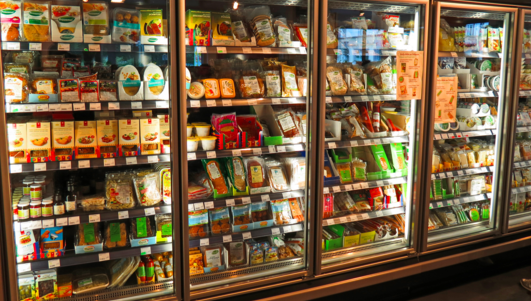
Photo courtesy of Wikimedia
In the past, the thought of ever becoming a vegetarian made me cringe. It seemed so difficult and sad because I thought it was a lifestyle of harsh restrictions. After actually transitioning to a meat-free diet, I can say that I have never once actually felt this way.
I’ve learned that vegetarianism is not about restrictions or cutting foods from my diet but making healthier substitutions, instead. Taking a look around my local grocery store has become so much more exciting as a vegetarian because the options for delicious meals are endless without even having to head over to the meat case. Not to mention, vegetarian alternatives to meat are in just about every grocery store and they are so tasty. I’m looking at you, Gardein.
One of the biggest concerns about a plant-based diet is the daunting questions from people on how we will ever get enough protein. Making beans, nuts, fruit, greens and soy true staples to my diet has not once made me concerned that I’m not getting the protein my body needs. Being a vegetarian is all about getting creative with meals to ensure you’re getting the nutrients you need.
Instead of chicken in a salad, add some protein-packed chickpeas or beans. Instead of a beef taco, add in some plant-based protein crumbles and season it up. And instead of a burger, find a brand of veggie burgers you enjoy or even make your own. Once I put my mind to it, going vegetarian was one of the easiest choices I could have made to not only benefit my health, but to have fun planning meals as well.
2. Cooking is power
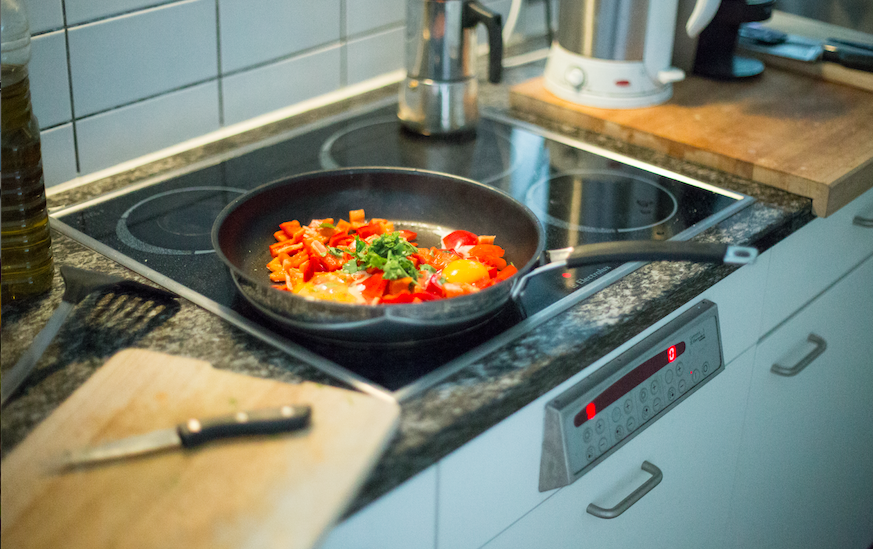
Photo courtesy of Pexels
I have always loved to cook and have been enjoying it even more now since going plant-based. If you’re thinking of becoming a vegetarian, I highly suggest learning the kitchen basics if you don’t already. Frozen vegetarian dinners can only take you so far before you have to jump into the frying pan, yourself.
Aside from the freedom of planning out meals for your week, cooking is the easiest way to bring out more nutrients to the vegetables you eat. Although there is nothing wrong with eating raw veggies, research shows that cooking vegetables like carrots, spinach, mushrooms, and cabbage before eating, supplies more antioxidants to the body than in their raw forms.
Much like when I ate meat, opting to cook a meal at home instead of going out to eat will always save money. The other night, my dinner consisting of steamed edamame, quinoa and a baked sweet potato didn’t cost me any more than $6 to make. Not to mention, when cutting out the cost of meat, grocery shopping becomes a lot cheaper.
3. My body is healing

Photo by Kristen Warfield
Before going vegetarian, clearly I was eating meat pretty regularly throughout my life, and for the past three years, I have been battling painful indigestion and heartburn after most meals. Each time I had a large meal focused around meat, it would lay so heavily on my stomach that I felt bloated and tired from eating it. But, it tasted so good to me that I can clearly remember saying I could never cut it out from my diet.
After just a few days into only eating plant-based foods, I was amazed at how quickly my digestive system started to heal itself. So far, I haven’t experienced any of the digestion problems I was having before and I feel so much happier because of it.
Looking back, I can’t believe that I was doing that to my body. In a sense, it sounds almost like an addiction. I was accepting discomfort I knew was coming afterward, just for the slight reward of something that tasted good. From never living without meat, I never knew that it was the source of my digestion problems, and worse, that it can be a major factor in a variety of health issues, including cancer.
The World Health Organization has classified processed meats as a definite carcinogen, and red meats including beef, pork and lamb as a probable cause for the disease. In my family, three people, including my mom, have battled this terrible disease and lived. I don’t want to make my chances of developing cancer even greater if I can help it.
4. Animals are sentient beings
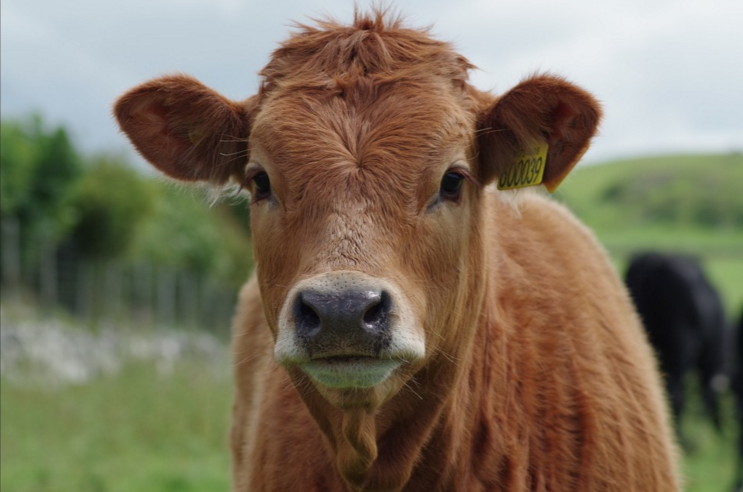
Photo courtesy of Pixabay
From a lifetime of eating meat, I never liked to think about the fact that what was on my plate and going into my body was the cooked carcass of an animal. Though I liked to imagine that I was an animal lover, I was brought up under the notion that eating meat was just the circle of life and it was fine to have someone else take the life of an animal, just so I could have a meal.
In addition to health reasons, my vegetarianism also rooted from learning the truth about factory farms. After having seen documentaries like Vegucated and Earthlings, my life was forever changed. The nightmarish images seen in these films depict the reality that is the livestock sector, where millions of animals’ only fate in life is to become a product. I was disgusted by the fact that if we did the same things to dogs or cats that we do to cows or chickens or pigs, we would be in jail. But because they are livestock, it is legal.
From learning all about this, my love and compassion toward animals have never been more real. Realizing that I can live a happy life without eating them is something so fulfilling and empowering to me. They are innocent creatures that have the capacity to feel pain, happiness, and love. Some may look at this reasoning and completely disregard it. But, personally, I feel that I cannot truly have compassion for animals and eat them, too.
On this same note, learning about the horrors of factory farms has made my respect for vegans grow immensely. I never understood their reasoning for cutting out all animal products because I simply just didn’t know the truth about the egg and dairy industry. I thought that dairy cows lived happily in pastures, or cage-free chickens were free to roam, but that is just not the case. Though I know some of my food still includes these products, I’m all for trying vegan alternatives to some of my favorite foods to cut back in any way I can.
5. Support goes a long way
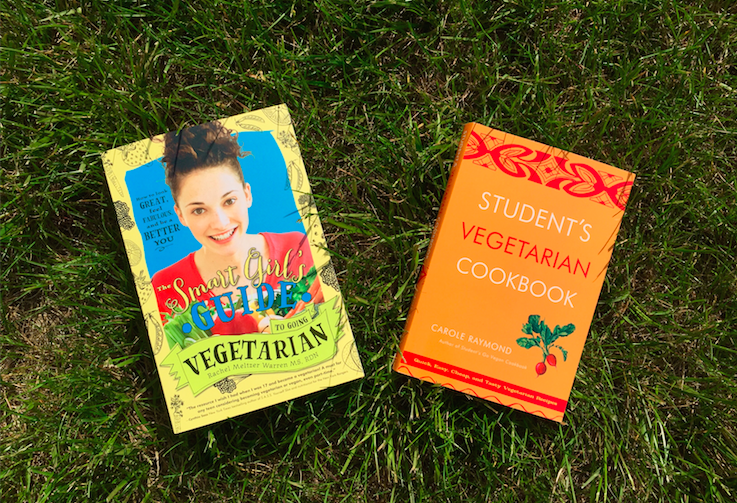
Photo by Kristen Warfield
When I first decided I wanted to become a vegetarian, I was very nervous to tell my family. I thought they would tell me I was being ridiculous and that it was going to make me sick to stop eating meat. I’ve always been one to research into everything, so before I even made this decision for myself, I made sure to be well-versed in what my nutritional needs would look like sans meat.
To my surprise, it was not nearly as hard as I was making it out to be. My parents asked questions on what I would eat instead, and my sister, who has a soy allergy, made it clear that as long as I wasn’t going to be inviting her over for tofu stir fry, then it was fine by her. Just like my meat-eating family, my boyfriend of four years wanted to learn more about vegetarianism, as well, and has been wonderfully supportive of my decision. Maybe I’ll get him to try some fake bacon soon, but we’ll see about that.
It took the people close to me a little while to become adjusted to my new lifestyle, but now everyone is really into making sure there are vegetarian options when we go out to eat or sending me new recipes that come their way. I didn’t expect for my decision to be so welcomed, but when it comes down to it, I am so appreciative of my friends and family for doing so. Of course, my dad still jokes time to time about my rabbit food, but I know it’s in good nature.
6. Whole foods are best
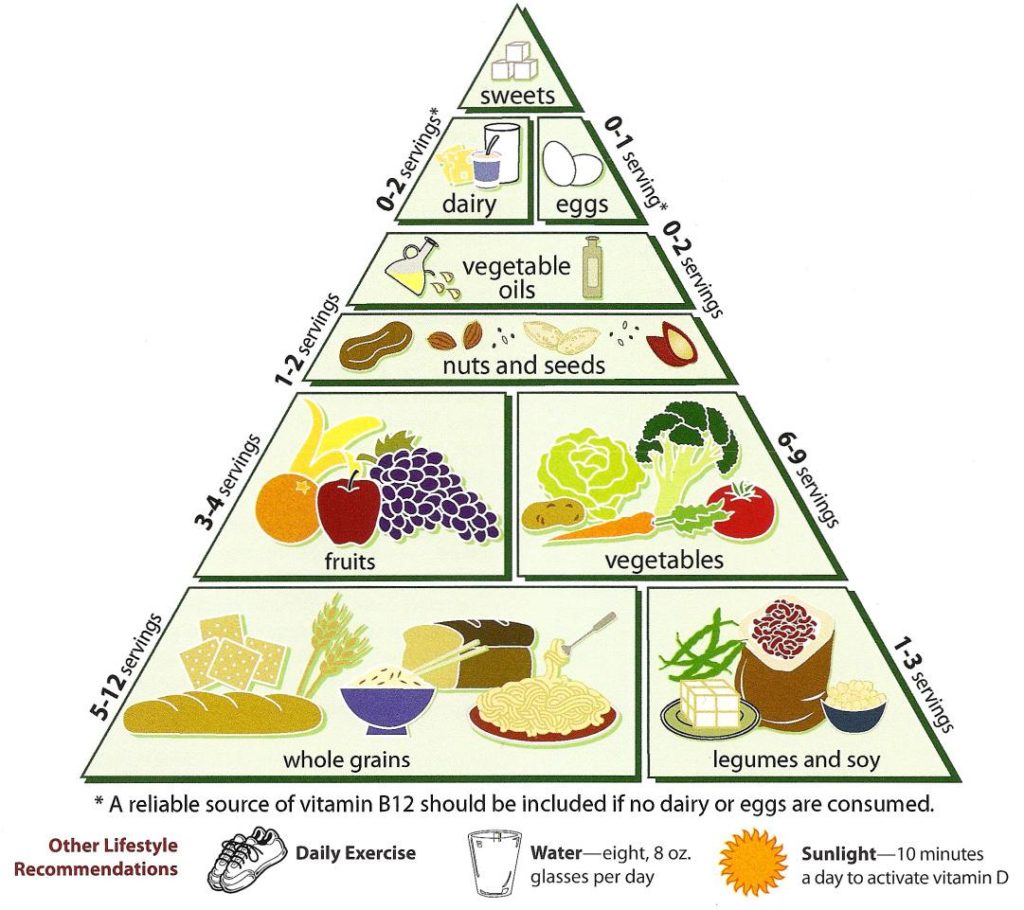
Photo courtesy of Wikimedia
After realizing that meat was the culprit behind my awful digestion issues, I turned to a lot of different resources to study up on the ways in which I could sustain a healthy life without it. From watching various YouTube videos, to scouring Spoon University for meal inspiration, I was able to find some great tools to help me plan meals. Along the way, I realized a few things wrong with the way I was eating before.
I’ll admit that I should have done better in the past to incorporate more whole foods into my diet. Whole foods are foods that have been processed and refined as little as possible that are either natural or close to their natural state. Whole foods contain the highest levels of vitamins, minerals, fiber, and other nutrients that prevent cell damage, boost the immune system and prevent diseases, like cancer, cardiovascular disease, and type 2 diabetes.
Becoming a vegetarian has absolutely made me more aware of my body’s dietary needs, and in turn, has helped me make conscious decisions to choose healthier snacks and meals. By eating plenty of fruits, vegetables, nuts, legumes and whole grains throughout my day, I stay full longer and feel energized after meals–not lethargic. I look forward to making meals from simple ingredients because I know what’s going into them.
7. Meal planning and smoothies save a lot of time
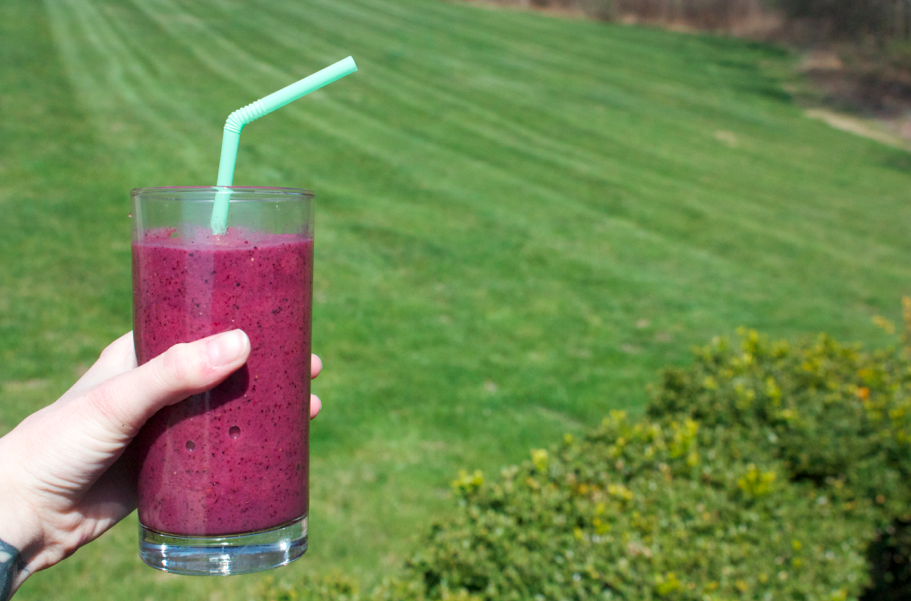
Photo by Kristen Warfield
Luckily for me, I don’t live on campus at my college so this has been really easy. At the beginning of each week, I’ll look through my recipes to see what I think I’ll want to have for some of my meals that week and head to the grocery store for my ingredients.
Aside from whatever I decide to make for my main dinners that week, I also pick up a week’s worth of fresh and frozen fruit to have for snacks or make into smoothies. For my birthday in April, I was gifted a NutriBullet and it has been amazing to have around the house to whip up a quick fruit and greens smoothie!
So far, my favorite combination has been blending up a banana, frozen berries, almond milk and a handful of spinach. If you have a blender, you have an easy and fast way to get in a serving of greens that tastes great.
8. The environment is in serious trouble
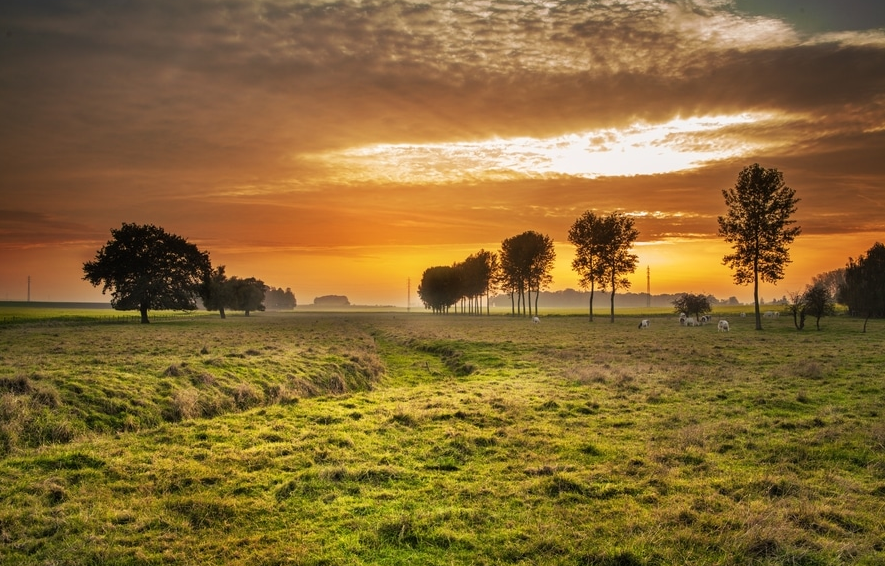
Photo courtesy of Pexels
The way meat consumption affects the environment is nothing short of shocking. If you don’t know already, read on. There’s value in knowing why.
Eating meat is a daily practice for most that puts a broad amount of stress on the environment. Of all the agricultural land in the U.S., 80 percent is used to raise animals for food and grow plants to feed them. That’s almost half the total land mass of the lower 48 states, according to the Department of Agriculture.
Though we can put a focus on recycling or taking shorter showers, the single most important thing people can do for the environment is to skip the meat.
The amount of water that goes into raising animals for food is astounding, especially in beef production. One pound of beef requires 1,799 gallons of water to produce, including the amount of water needed to grow food and provide drinking water throughout the cow’s lifetime. To put things into perspective, the American meat industry produced 23.69 billion pounds of beef last year.
That’s a lot of water! What happens when we cut out the middleman and eat a plant-based, whole foods diet, is pretty impactful. Compared to the almost 1,800 gallons for a pound of beef, one pound of:
- Soybeans requires 257 gallons
- Potatoes requires 119 gallons
- Pasta requires 222 gallons
- Tomatoes requires 26 gallons
Obviously, we are not all sitting around eating a pound of soybeans at a time, but the amount of water it takes to sit down for a plant-based meal will rarely reach that of one serving of beef. We could feed a lot more people on fewer resources by reducing or cutting out meat consumption.
Aside from using an extreme amount of land and water, the livestock sector is responsible for worldwide pollution. Less factory farms would translate into reduced climate pollution, healthier soil and waterways, and overall cleaner air.
With all these environmental factors at bay, cutting meat out of your diet just once a week can do so much. Join in on Meatless Mondays, only eat meat on the weekends or go all out and stop eating it. The Humane Society of the United States estimates that if every American followed Meatless Mondays, 1.4 billion fewer farm animals would need to be raised for the sake of food. Not only would that stomp out a lot of pollution, but it would also spare a lot of lives.
9. I’m a happier person
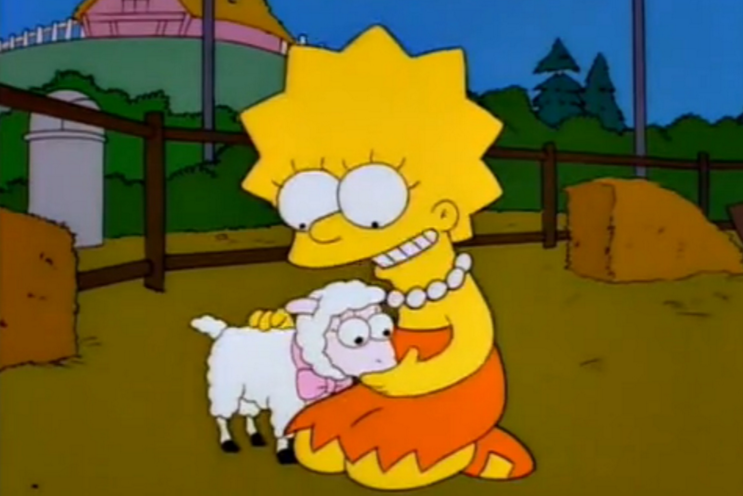
Photo courtesy of YouTube
Knowledge is power.
I’ve always been one to question things to really get down to the fact of the matter. If something piques my interest, then I’m on a mission to figure it out, all around. I guess that’s why I’m a journalism major, right? Learning makes me happy. It feeds my curiosity and helps me make more informed choices.
Although all that I’ve learned, so far, from being a vegetarian has not been entirely pleasant, there is much to celebrate about in choosing this lifestyle for myself. I feel healthier, I feel happier and I really feel that I’ve never loved myself more.


